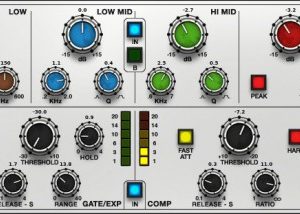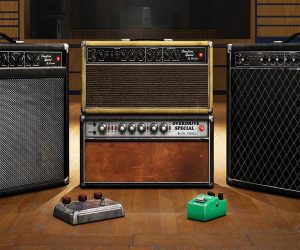
The Quick Mix: Tim Millikan
With Tim Millikan.
Interview: Neil Gray
Who have you been touring with lately?
Gurrumul, and I’ve been busy with Rockwiz.
Who have you worked with in the past?
Midnight Oil, INXS, The Cruel Sea, Paul Kelly, Crowded House, Neil Finn, The Divinyls.
How long have you been doing live sound?
I got started mixing my brother’s bands 35 years ago.
You favourite console?
It would be the Midas XL4 for sheer sonic quality.
Favourite piece of kit?
The Lexicon 480L is the best reverb in the world. It sounds great on everything.
Most memorable gig?
I’ve been lucky to see and mix so many amazing artists over the years, but had the perfect show with Midnight Oil one night at Irvine Meadows in California. Everything fell into place straight out of the blocks; huge crowd, band absolutely fired — was just one of those special nights.
How has your mixing setup changed in the last 15 years?
Probably having the freedom to finesse things a little more with the introduction of digital consoles. I’m not sure if I’ve actually changed the way I do things, its more the layout of my console that’s changed.
When digital came in and people discovered plug-ins, everyone wanted to use everything; your entire night was spent chasing your tail trying to keep everything under control. I use very few plug-ins these days, but being able to run a chain of plug-ins is extremely handy when required. For example, I like using a Waves C4 Multiband compressor along with a VEQ4 and then into a Fairchild on my main vocal, I just seem to get the clarity and warmth I’m after with that combination.
What’s been game-changing over the last 15 years?
I’m not sure if there has been any one feature or piece of gear that’s made a discernible difference for me. Maybe having versatility within speaker manufacturer’s lines. For instance, L-Acoustics and d&b both have small-, medium- and large-size cabinets. Being able to use say d&b Q series in theatres and still have the same voicing as the J-line means my mixes are more consistent from theatres to arenas and festivals.
How have your working methods changed?
They haven’t — it must be the highest quality audio I can produce from the first bar of the first song. We have the tools to do this now; audio should not be hit or miss.
Any tips or words of wisdom for someone starting out?
It’s all about the vocal, that’s where the information of a song is; the vocal must be pristine. It’s no good having the greatest kick drum sound if the vocal is buried.
Volume does not equal talent. Use your ears, not the screen. If it sounds wrong, it is wrong. Trust your ears, it’s the one thing we all have in common, whether you’re an engineer or not, people all hear through the same interface.
















RESPONSES